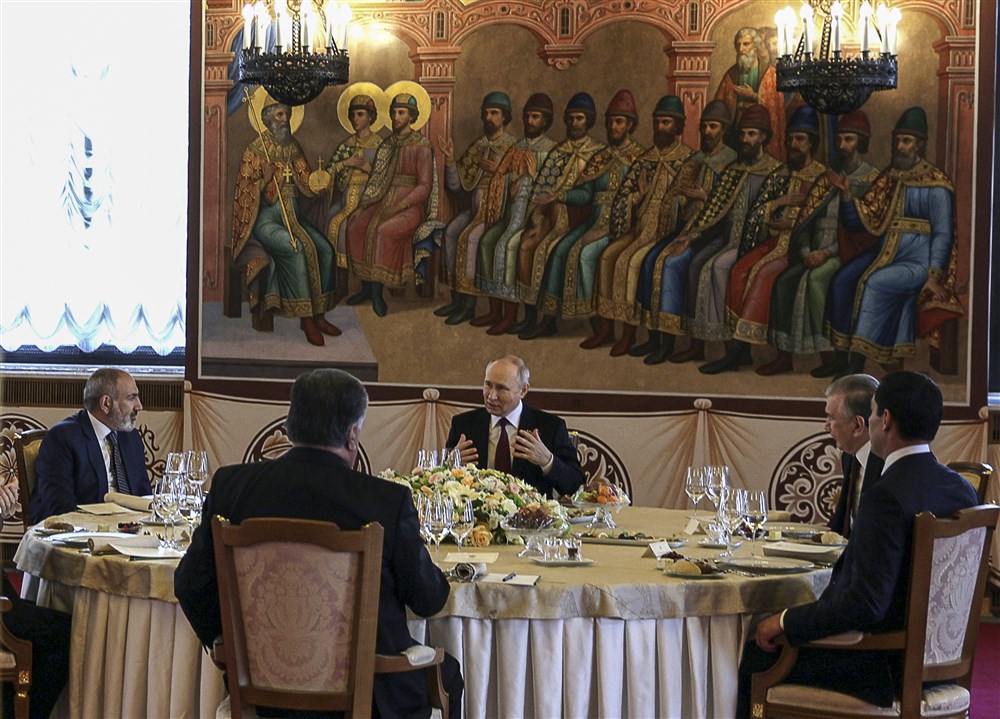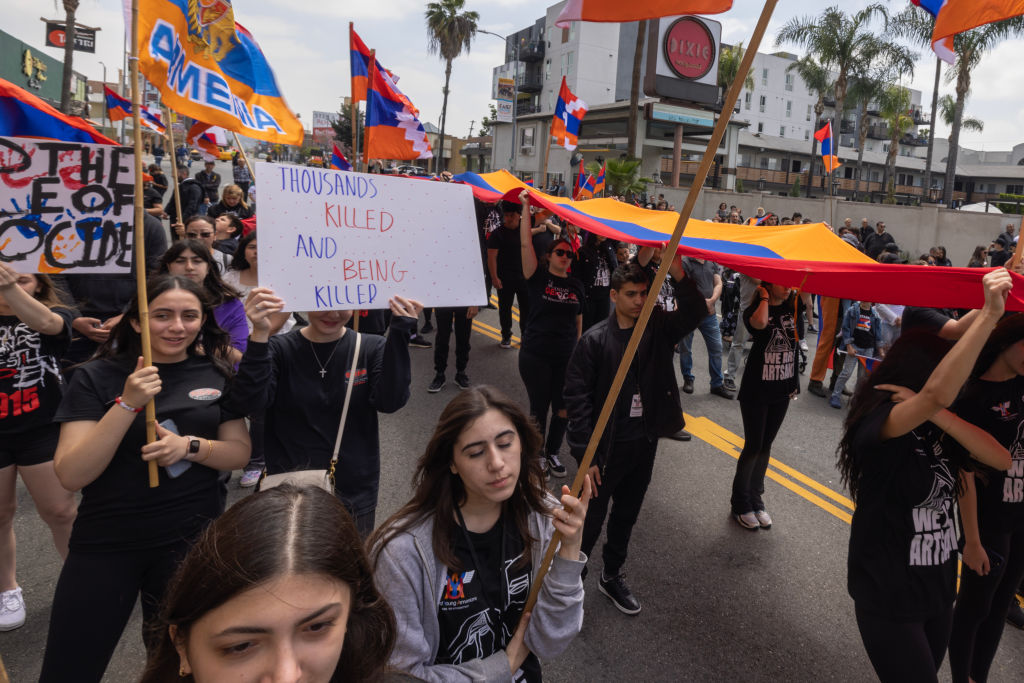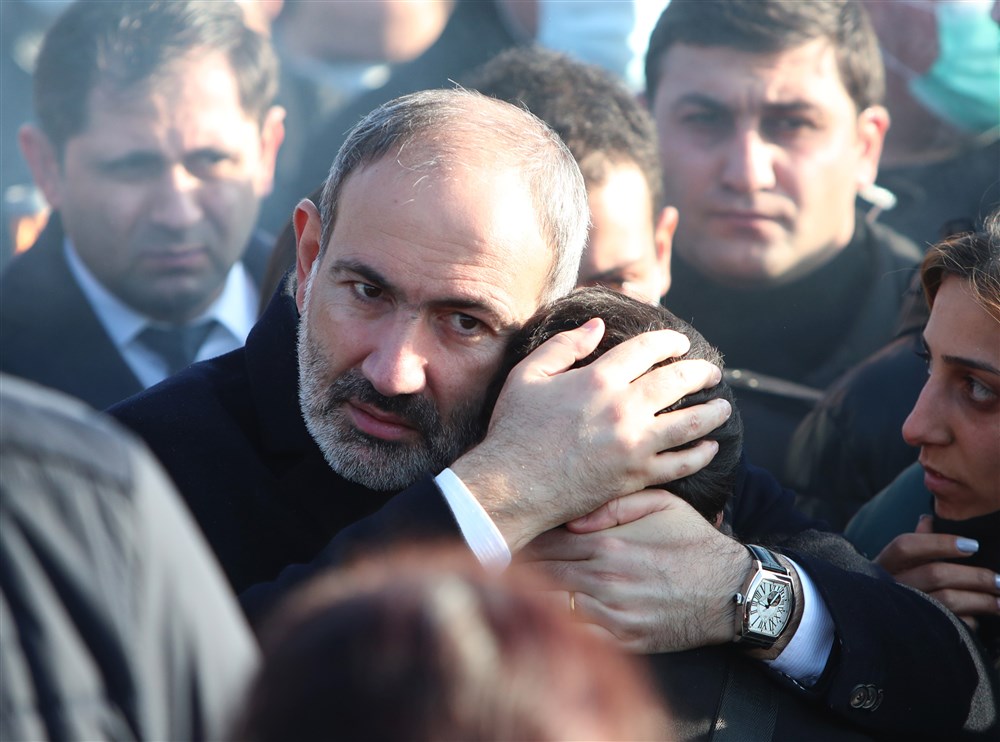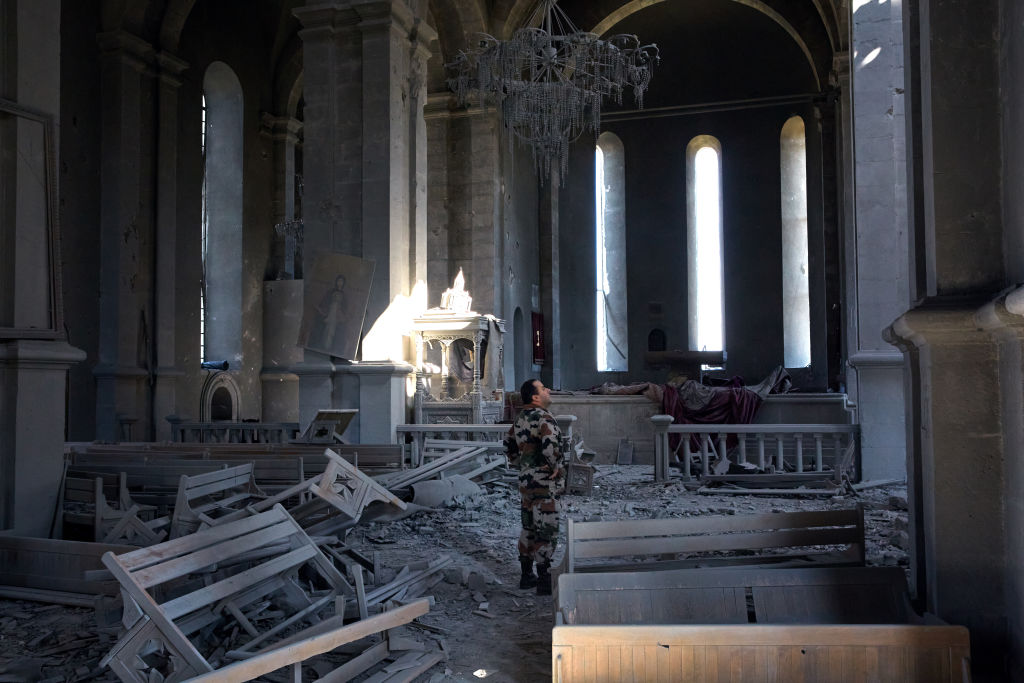At around 12:20pm on August 15, the European Union Mission in Armenia (EUMA) patrolling in the border region with Azerbaijan was fired upon. Initially, the European Union denied any such incident but was forced to backtrack as evidence of the shootings was published online. There are no reported injuries or casualties.
The outbreak of gunfire happened in the vicinity of Verin Shorzha, about 6km from the border with Azerbaijan. The Armenian Government has blamed the Azerbaijani army but the latter denied any responsibility.
Somewhat confusingly, after initially reporting the incident, the EU mission contradicted this and said the claims apparently made by the Armenian Government were in fact fake.
“No EUMA patrol has been the target of the shooting. We patrol alongside the Armenia-Azerbaijan border areas and report to Brussels on military developments, including shooting incidents in our area of responsibility,” EUMA posted on Twitter, now X.
A little later, the group retracted that statement and admitted there was a patrol present when the shootings happened.
?CORRECTING STATEMENT:
We confirm that #EUMA patrol has been present to the shooting incident in our area of responsibility.❗️No #EUMA member was harmed.
— European Union Mission in Armenia (@EUmARMENIA) August 15, 2023
Officials in the Azerbaijan capital Baku deny any wrongdoing. “The units of the Azerbaijani Army have been informed about the visits of the mission, so the incident reported by the Armenian Defence Ministry is theoretically and practically impossible,” the defence ministry said.
Brussels Signal reached out to the European External Action Service and to EUMA but no reply had been received as of writing.
The EU has been heavily engaged in supporting the “normalisation” process between Armenia and Azerbaijan, including via the latest Brussels Trilateral Meeting of the countries’ leaders on July 15 calling for peace. It sent EUMA representatives to observe and report on the security situation along the Armenian side of the border with Azerbaijan.
Tensions are high between both countries, as Azerbaijan is using its military superiority to block aid access to the Nagorno-Karabakh region, known as Artsakh by Armenians and where many live.
Supplies are normally transported using a single route called the Lachin Corridor, which links to Armenia. Azerbaijan has blocked that corridor since December 2022, effectively isolating the region and depriving residents of food and medicine.
The region is populated by Armenians but controlled by Azerbaijan. Armenia and a large number of international observers accuse Azerbaijan of wanting to ethnically cleanse the area, with Luis Moreno Ocampo, who served as the first Prosecutor of the International Criminal Court, describing the blockade as an “ongoing genocide”.
Europe finds itself entangled in the conflict due to the considerable empathy felt for Christian Armenia, a democracy that boasts a substantial diaspora in the Western world. In contrast, the autocratically governed Shia-majority Azerbaijan plays a pivotal role as a significant provider of oil and gas into the EU. This role has grown in significance following the imposition of sanctions against Russia over the war in Ukraine.
An emergency session of the UN Security Council is set for August 16 to discuss the matter of humanitarian supplies access to Nagorno-Karabakh.
Officials in Armenian capital Yerevan and in Stepanakert, the de facto capital of Nagorno-Karabakh, claim that Azerbaijan has been obstructing access to the region with what they deem an “unlawful blockade”.
UPDATE:
Wednesday evening, the European Commission replied to Brussels Signal on the incident, stating “While conducting a patrol on August 15 near the Verin Shorzha village, the EU Monitoring Mission in Armenia (EUMA) reported 4-5 shots being fired approximately one kilometre from where the mission was patrolling. The mission was not in a position to identify the origin, nor the target of the shooting. The patrol members did not identify themselves to be the target of the shooting, but took protective measures and left the area.”
“EUMA continues its important mission of observation along the Armenian side of the international border with Azerbaijan, in close contact with all parties.”





